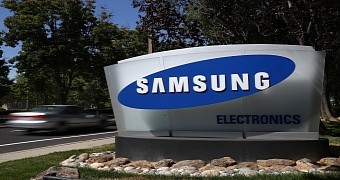It's a well-known fact that Pascal graphics processing units will be the successor to the current Maxwell GPUs from NVIDIA and will guarantee much better performance than today's cards. And now we know that Samsung is definitely not involved in their creation.
Developed through the new 16nm FinFETs manufacturing process, the Pascal die will feature the already famous High Bandwidth Memory tech, but this time, arriving in its second iteration, called HBM2. However, according to Business Korea, although Samsung is joining SK Hynix in manufacturing HBM FinFETs, it won't produce the Pascal die.
Although it was already rumored that Taiwan's experienced TSMC would work on NVIDIA's future 16nm FinFETs since the process manufacturing was similar to Apple's 14nm A9 SoC, Samsung's message confirms this. Apparently, NVIDIA chose TSMC because of its experience and product consistency.
Samsung entered in a direct competition against TSMC
The underlying details, however, show that there is a stiff competition between Samsung and the Taiwanese fabs, as the new iPhone 6S wafers are now handled by the Korean company, something that worried the TSMC executives. Nonetheless, Samsung couldn't beat TSMC's partnership with NVIDIA, which has lasted for twenty years, so unfortunately, there's no surprising turnaround in Samsung's favor, at least not this year.
The reason why a possible contract would have been extremely valuable for Samsung is that it could have dominated both SK Hynix, the original HBM manufacturer, and TSMC in wafer numbers, winning a major advantage against rival fabs.
Most experts, however, blame Samsung's failure to win such a powerful contract on its lack of experience in the domain. Samsung's announcement about entering the HBM race has rattled some cages in the fab industry, putting TSMC and GlobalFoundries on a defensive stance as they were aware of the huge potential funds Samsung could invest in R&D. Customers weren't impressed, though, and for the time being, traditional relationships remain in place.

 14 DAY TRIAL //
14 DAY TRIAL //